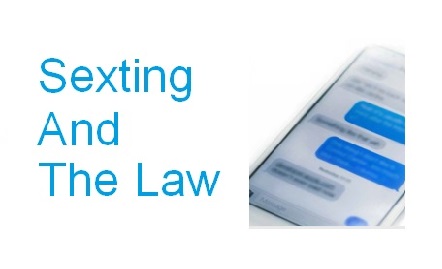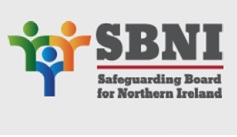
24 Sep Keeping People Safe
What is ‘Sexting’?
‘Sexting’ is when someone sends orreceives a sexually explicit text, image or video on their mobile phone, computer or tablet. It can include sexual chat or
requests for pictures/images of a sexual nature.
Is it illegal?
This depends on what the image is or what the chat involves and who it is sent between. However, it is a crime to possess, take, make, distribute or show anyone an indecent or abuse image of a child or young person under 18 years of age. Always remember that, while the age of consent is 16, the relevant age in relation to indecent images is 18.
Use the guide below for further information:
If it’s a sexually explicit picture/ image of an adult and sent between adults:
If so, there is no sexual offence but if the picture/image is unwanted then there may be other offences such as harassment or blackmail to consider. Any concerns should be reported to your local police station.
If it’s a sexually explicit image of an adult and sent between children:
If so, there is no sexual offence but it may, in some cases, be appropriate to speak to Social Services for advice and guidance.
If it’s a sexually explicit image of an adult and sent from an adult to a child:
If so, an offence may have occurred. Contact local police on 101 for further guidance.
If it’s a sexually explicit image of achild (under 18 years of age):
If so, you should contact local police on 101 for advice and guidance. Do not delete the image and under no circumstances should you save the image, send it to another person or show it to anyone else as you may be committing an offence.
REMEMBER – IF YOU ARE IN ANY DOUBT ALWAYS CONTACT POLICE ON 101 FOR FURTHER INFORMATION.

What if a child (under 18 years of age) takes a sexually explicit image of themselves?
That child has committed an offence by making and possessing that image. If that child then sends the image to another person then the child has committed a further offence of distributing the image and the person who receives the image will also be liable for an offence of possessing the image. In these cases you should contact local police on 101 for advice and guidance.
Please be aware that, while offences may technically have been committed by the child/children involved, the matter will be dealt with sensitively and considering all of the circumstances.
If it’s sexually explicit text/chat between adults (this can include requests for pictures of a sexual nature):
If so, there is no sexual offence but if this communication is unwanted then there may be other offences, such as harassment to consider. Any concerns
should be reported to your local police station.
If it’s sexually explicit text/chat between an adult and a child (this can include requests for pictures of a sexual nature):
There may be a possible offence and you should contact your local police station on 101 for further guidance. Do not delete or alter any material.
If it’s sexually explicit text/chat between children:
There may still be a possible offence but in these cases the detail of the text/ chat should be considered. General sexual references would not necessarily constitute an offence but text/chat that incites a child to engage in sexual activity or to make or distribute sexual images of themselves or another child should be reported to local police for further guidance. Do not delete or alter any material.
Please be aware that, while offences may technically have been committed by the child/children involved, the matter will be dealt with sensitively and considering all of the circumstances. In particular any age difference between the children should be considered.
If you are in any doubt you should always contact local police on 101.

If you need any further information or guidance:
Anyone looking for advice about sexting or keeping children safe online, or
concerned about the safety and welfare of a child , can contact the
NSPCC’s 24-hour helpline on 0808 800 5000 or email help@nspcc.org.uk
Children worried about online safety or any other problem you can call the free, 24-hour helpline on 0800 1111 or get help online at www.childline.org.uk


